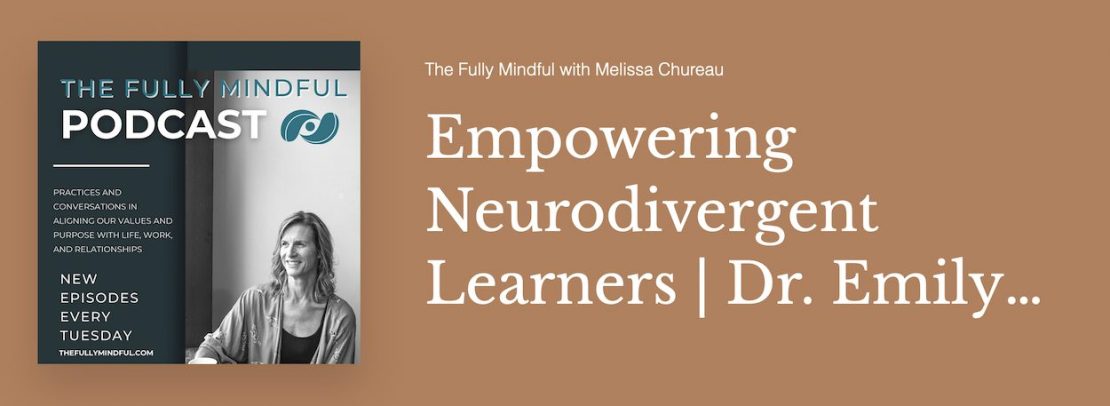
Empowering Neurodivergent Learners – Dr. Emily Levy on the Fully Mindful Podcast
You can listen to this full podcast here! How to Help Adults and Children with ADHD and Learning Differences
In this podcast I speak about strategies for helping children and adults with ADHD and learning differences. Setting up concrete tools and strategies can help everyone, but these tools are particularly helpful for those with ADHD or learning challenges. Try some of these ideas:
Use a Calendar
Calendars serve as great tools for helping us stay organized. The key is to use them consistently! Some people prefer to write in a physical calendar while others like using digital calendars, including one on a smart phone. Either option is fine but make sure you enter all assignments and obligations into your calendar as soon as you find out about them. You can even try color coding the items you enter based on category; for example, you or your child might highlight school assignments in blue, sports activities in green, and social engagements in yellow. If you are using a calendar on a smart phone, try setting reminders to alert you when a due date or social obligation is coming up.
Set up a Homework Routine
For students with ADHD, setting up a consistent homework routine is key. They should pick a designated time of day when they will complete their homework. This could be right after school when they are still in “school mode” or after a snack or athletic break. Any of these options can work as long as your child stays consistent with completing their homework at this designated homework time. Also help your child set up a study space. This space could be a desk in their room or a spot on the kitchen or dining room table. Make sure they have all necessary supplies at their study space, including pens, pencils, paper, highlighters - any tools they may need for completing their work. If the stock of supplies starts to run low, refill it right away to prevent your child from wandering around your home searching for supplies in the middle of homework session. Also, if your child works at your kitchen or dining room table, you may want to set up a portable homework bin containing all supplies they need for completing their homework that they can carry with them to and from their homework sessions.
Build in Breaks
It can be hard for anyone to sit in one place for a long stretch of time working on what may feel like endless homework. For those with ADHD, this challenges is typically even greater. Encourage your child to build structured breaks into their homework sessions. For instance, they might set a timer and work for 25 minutes straight, then take a 5 minute break - and do two more cycles of 25 minutes of work followed by a 5 minute break. After three of these cycles, they may take a longer break of perhaps 15-20 minutes. Feel free to tweak the length of the break times based on your child’s stamina and needs. The key is breaking down very large stretches of time into manageable increments. Study skills tutoring or executive functioning coaching may be helpful to further help your child develop these skills.
Read more about ADHD strategies at
Prioritizing
Being able to effectively prioritize tasks can be a challenge for both children and adults with ADHD. Help your child learn to prioritize with a color coding strategy. If they have eight items to complete, for instance, have them write down each task on a list and then categorize them into “high,” “medium” or “low” priority level. Then they can choose a color to associate with each priority level. For instance, they may highlight items with a high level of priority in yellow, those with a medium level of priority in green, and those with a low level of priority in blue - then complete the tasks in order of high to low priority. If your child continues to struggle to prioritize tasks, you might consider executive functioning coaching.
Children and adults with ADHD often struggle with skills including planning, time management, organization, and prioritizing. Try these strategies at home and you will likely notice positive improvements in each of these skill areas.
Read more about how ADHD tutoring can help your child at https://eblcoaching.com/can-
Dear Dr. Levy, My son
received an excellent report card. I can’t say enough good things about his EBL
tutor. She has done a tremendous job helping him improve his reading and writing
skills. Most importantly, she is wise and kind. She is always patient with him.
Because of his tutor, my son writes with much more ease.
– Parent

